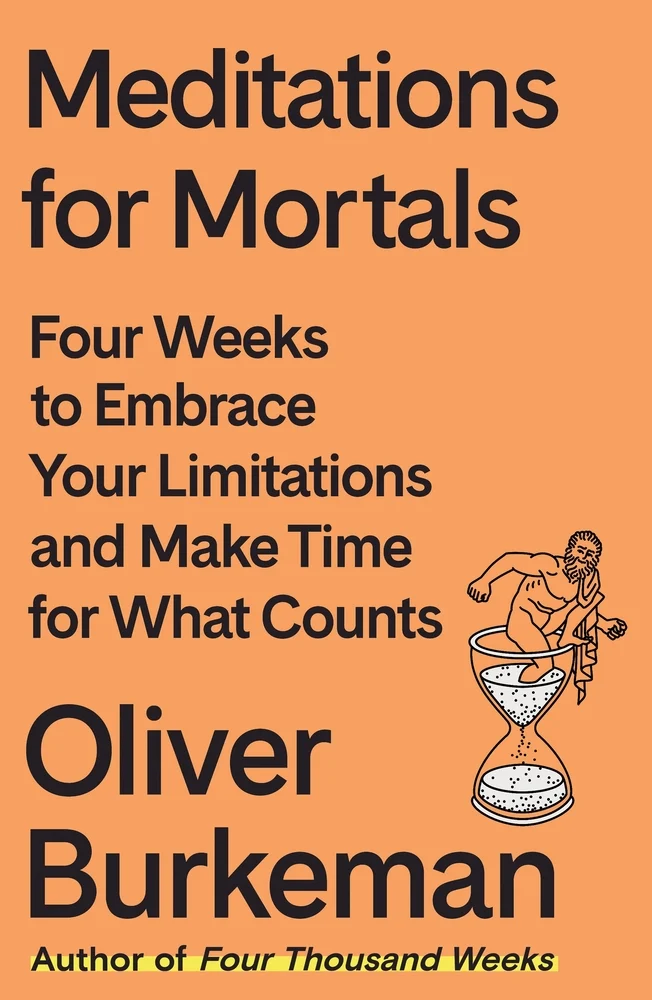
Meditations for Mortals
By Oliver Burkeman
I read the whole book in two days instead of the 28-day pace the author suggests. It’s fine. A few good quotes in there. I’ll probably use some bits in a future blog post.
Notes & Highlights
Almost nobody wants to hear the real answer to the question of how to spend more of your finite time doing things that matter to you, which involves no system. The answer is: you just do them. You pick something you genuinely care about, and then, for at least a few minutes – a quarter of an hour, say – you do some of it. Today. It really is that simple. Unfortunately, for many of us, it also turns out to be one of the hardest things in the world.
The truth, though it often makes people indignant to hear it, is that it’s almost never literally the case that you have to meet a work deadline, honour a commitment, answer an email, fulfil a family obligation, or anything else. The astounding reality – in the words of Sheldon B. Kopp, a genial and brilliant American psychotherapist who died in 1999 – is that you’re pretty much free to do whatever you like. You need only face the consequences.
People today are in danger of drowning in information; but, because they have been taught that information is useful, they are more willing to drown than they need be.’ – IDRIES SHAH
Almost everything that happens, according to an adage of uncertain origin, is either a good time or a good story.
[...] from the essayist Anne Lamott: Everyone is screwed up, broken, clingy, and scared, even the people who seem to have it more or less together. They are much more like you than you would believe. So try not to compare your insides to their outsides.
But the relationship between the two kinds of ‘impossible’ is actually an inverse one. In other words, the more willing you are wholeheartedly to acknowledge the hard limitations of human finitude, the easier it gets to do what others might dismiss as impossible. Once you stop struggling to get on top of everything, to stay in absolute control, or to make everything perfect, you’re rewarded with the time, energy and psychological freedom to accomplish the most of which anyone could be capable.
‘There was the cat, asleep. He ordered a cup of coffee, slowly stirred the sugar, sipped it (this pleasure had been denied him in the clinic), and thought, as he smoothed the cat’s black coat, that this contact was an illusion and that the two beings, man and cat, were as good as separated by a glass, for man lives in time, in succession, while the magical animal lives in the present, in the eternity of the instant.’ – JORGE LUIS BORGES